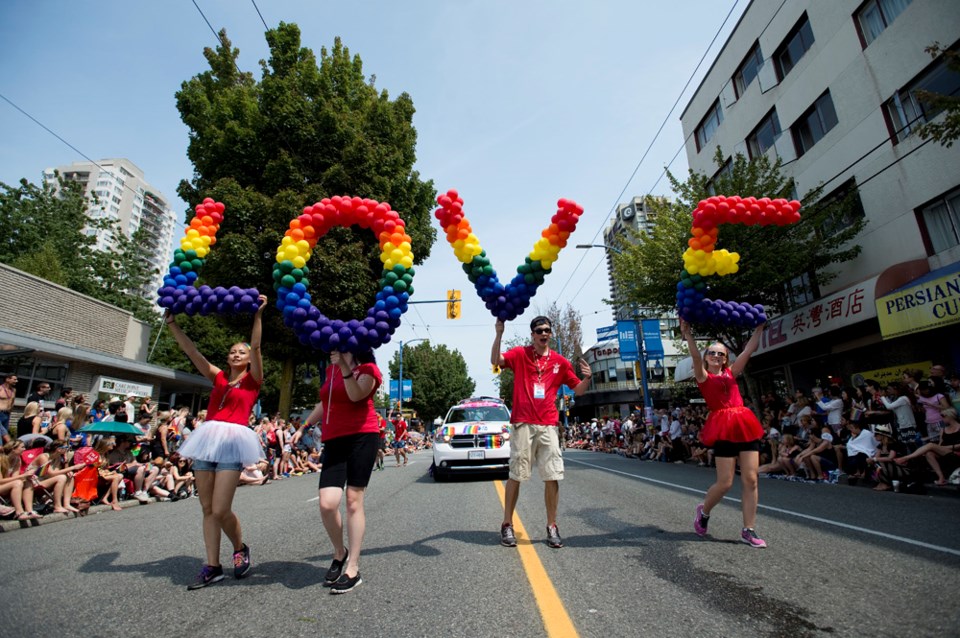Alex Sangha struggled to come out as a gay man, enduring emotional crises and contemplating suicide. Coming out can be difficult for any person — especially years ago, before governments codified human rights and equal marriage — but Sangha thinks members of some ethnocultural communities have a tougher time due to religious and family pressures.
Sangha is a Sikh man, but he faced backlash from members of his religious community when he founded Sher Vancouver, in 2008, as a Sikh gay group.
“At that time, the president of a Sikh temple said there was no such thing as gay Sikhs,” Sangha recalls. “A South Asian radio station had a poll and I think 85 per cent of the people said ‘we will not support a gay Sikh group.’ So we strategically turned it into a gay South Asian group. We separated it from religion.”
Nevertheless, the vast majority of members, he says, are Punjabi Sikhs.
The negative attitudes underscored Sangha’s feeling that such a group was necessary.
“I remember how difficult it was for me to come out of the closet and how suicidal I was and how depressed I was, how lonely I was, how rejected I felt from some quarters of my friends and family circle,” he says.
He is candid about the limited ambitions of Sher Vancouver.
“We just wanted to provide social support, psychological support, peer support, information and referral,” he says. “We didn’t want to start changing the religion.”
Things have changed for the better in less than a decade. Sher Vancouver works with immigrant and settlement agencies and a board member from the same temple whose president once denied the existence of gay Sikhs has contacted Sangha to work together.
“We may not agree with everything,” Sangha recalls the board member saying, “but we want to work with you on HIV and STDs, on depression, on suicide ideation, on improving the health and wellness of our community and the safety of our community.”
One of the problems, Sangha says, is the pressure on South Asian young people to find a spouse of the opposite gender and have kids.
“A lot of people were forced into these marriages and they end up having affairs with men and they’re depriving their wife of a loving, intimate relationship and they’re depriving themselves of a loving, intimate relationship. And then what happens is they start to engage in high-risk behaviour because they don’t like themselves and then they put their wife at risk of HIV and STDs,” he says.
Sangha has been recognized by his Member of Parliament with a Jubilee Medal for his work and he is one of the marshals at this weekend’s
Vancouver Pride Parade, recognized as a role model for his work.
His philosophy is simple: “I always believe that you need to be true to your identity and be true to the way the Creator has created you. You have to live the life that you were born to live and you only have one life to live and life is short. You can’t go around with a double identity and be something that you’re not. I’m already 44 years old, do you want me to live a secret life just to please other people? Forget it. I’m going to do what I want and enjoy my life.”
Unlike many gay people — or other people, for that matter — Sangha has not abandoned his religion.
“Sikhism is a very wonderful religion,” he says. “It’s about helping the marginalized, the oppressed, the vulnerable, the weak and defending their rights. It’s a religion of brotherhood and supporting each other. It’s a religion of equality. There is not one line in the Guru Granth Sahib, which is the Sikh bible, about anything to do with homosexuality.”
He has taken to heart something his mother said about the Sikh view of love.
“She said that, in Sikhism, when two people get married, it’s two souls coming together,” he says. “It’s not two physical bodies. Both the souls and the spirits are genderless. That made me feel very good. Such a good way of looking at it. Now when I go out in the world, I talk to people,
I look at their soul, I look at their spirit and I see that in them and I think this is what I should be connecting with.”
At a time when the Black Lives Matter movement is so visible and racism — including within the LGBTQ community — is being confronted, Sangha says groups like Sher Vancouver can provide both a supportive place with people who understand the religious or cultural particularities people face while also providing a vital role model not only locally but globally. Sangha was profiled in a major Indian newspaper.
“If we can do nothing else in this country, we can set a precedent for other countries in the world,” he says, “like in India, where homosexuality is illegal. In some countries around the world you can be killed if you’re gay, be stoned or hanged. There’s a lot of countries around the world where there’s still the death penalty. If we can do nothing else, we can continue to fight for our rights and this will reverberate around the world and set a precedent. Just like the U.S., when same-sex marriage went from state to state to state to state and then finally the Supreme Court took it on and the whole country now has same-sex marriage. I think the same thing can happen at the global level. As more and more countries start to recognize gay rights, other countries that are on the periphery or the margin will also come around.”
@Pat604Johnson



